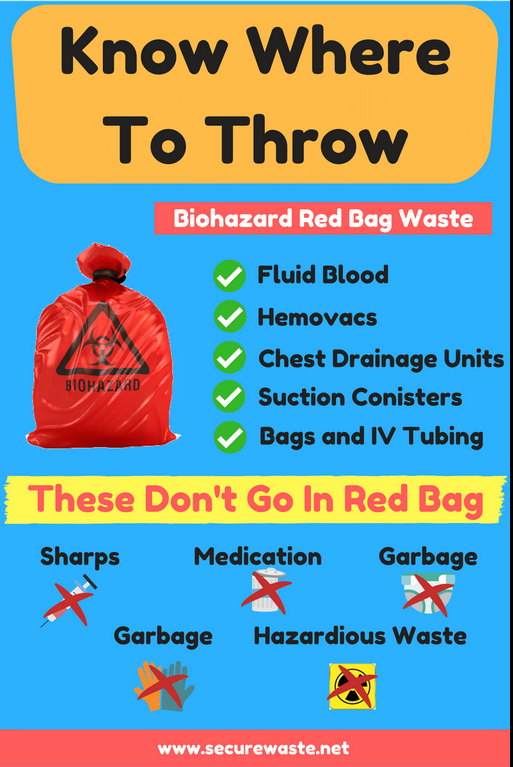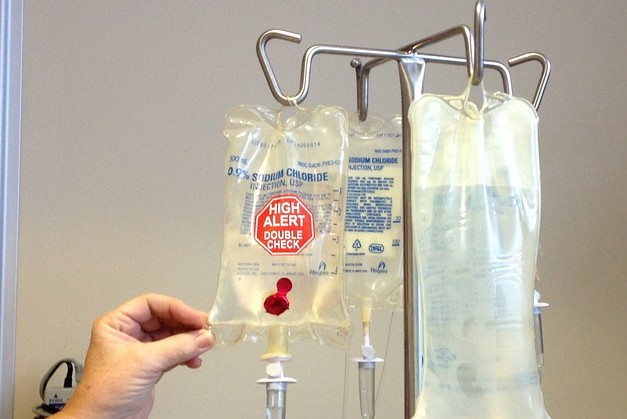Shielding Wellness: Specialist Medical Waste Removal Services for a Clean Setting
Shielding Wellness: Specialist Medical Waste Removal Services for a Clean Setting
Blog Article
Keep Ahead of Rules: Specialist Recommendations on Medical Garbage Disposal
In a globe where the health care industry is regularly progressing, it is imperative for clinical centers to stay in advance of policies when it pertains to the appropriate disposal of medical waste. With rigorous standards and constant regulative modifications, it can be testing to navigate the complexities of this procedure. Nevertheless, with expert advice, centers can ensure conformity and minimize dangers linked with inappropriate waste disposal. From understanding the different categories of medical waste to carrying out the best collection and segregation techniques, this discussion will offer workable ideas and valuable insights to help facilities stay ahead of laws in the ever-changing landscape of medical waste disposal.
Recognizing Clinical Waste Categories
Recognizing medical waste classifications is essential for appropriate disposal and administration in health care facilities. Medical waste refers to any kind of waste created by medical care activities that might pose a danger to public health or the atmosphere. It is critical to categorize clinical waste precisely to guarantee its safe handling, disposal, transportation, and treatment.
There are several categories of medical waste that healthcare facilities need to be acquainted with. One of the most usual categories include infectious waste, pathological waste, sharps waste, pharmaceutical waste, and chemical waste. Each classification has particular standards and policies for its appropriate administration and disposal.
Transmittable waste includes products contaminated with blood or various other bodily liquids, such as handwear covers, gowns, and lab cultures. Pathological waste describes human cells, body organs, or body components that need special delivery and disposal. Sharps waste includes made use of needles, syringes, and other sharp objects that can cause injury and send infections. Drug waste consists of ended, extra, or contaminated medications that require cautious handling and disposal. Chemical waste consists of solvents, anti-bacterials, and other chemical materials used in medical care facilities.
Staying Up-To-Date With Regulatory Modifications
Staying existing with regulative changes is vital for healthcare facilities to ensure conformity and proper management of medical garbage disposal. medical waste removal services. With laws frequently evolving, it is vital for healthcare facilities to remain current to avoid charges, fines, and potential damage to the atmosphere and public health
To remain ahead of governing changes, medical care centers must establish a system for tracking and monitoring updates. This can be done by registering for regulatory newsletters, going to meetings and workshops, and proactively taking part in industry associations. In addition, facilities must assign a team member or group in charge of remaining notified and sharing details to relevant stakeholders.
Normal interaction with regulative companies is likewise important. Medical care centers must establish connections with regional, state, and government companies to guarantee they are aware of any type of adjustments in policies that may impact their waste administration practices. This can be done with routine meetings, participation in public remark durations, and aggressive engagement with regulative agencies.
Additionally, healthcare centers ought to consider partnering with waste monitoring companies that focus on clinical garbage disposal (medical waste disposal services with WasteX). These business are commonly well-versed in the current laws and can provide guidance and assistance to make sure compliance
Implementing Proper Collection and Partition Techniques
To effectively handle medical garbage disposal, healthcare centers should establish correct collection and segregation methods based on regulative standards. Applying these approaches ensures the secure handling and disposal of potentially hazardous materials, safeguards the environment, and reduces the risk of infections and injuries to health care employees and the basic public.
Proper collection and segregation techniques involve the use of marked containers and classifying systems. Medical care centers should supply plainly labeled containers for various sorts of clinical waste, such as sharps, infectious waste, pharmaceutical waste, and non-hazardous waste. These containers need to be color-coded and plainly significant to stay clear of confusion and advertise easy recognition.
In addition, healthcare centers should educate their team on the correct procedures for accumulating and setting apart clinical waste. This consists of enlightening them on the various sorts of waste, the suitable containers to utilize, and the relevance of following regulations and guidelines. Regular training sessions and refresher course training courses should be conducted to make sure that team member continue to be updated on ideal methods.
In addition, healthcare facilities need to develop a system for Recommended Site regular collection and disposal of medical waste. This may include partnering with certified waste management business that focus on medical garbage disposal. These business will guarantee that the collected waste is delivered and disposed of in compliance with governing requirements.
Picking the Right Disposal Techniques

Incineration is one of one of the most usual and reliable approaches for taking care of specific kinds of medical waste, such as pathological waste and sharps. It involves the regulated combustion of waste at heats, decreasing it to ash. Nonetheless, incineration can launch dangerous toxins into the air and add to air contamination.

Chemical therapy entails the use of chemicals to sanitize and reduce the effects of the waste. Microwave therapy makes use of microwave power to warmth and decontaminate the waste.
Guaranteeing Conformity With Documentation and Training
After carefully taking into consideration the suitable disposal methods for clinical waste, discover here healthcare centers should ensure conformity with regulations and reduce environmental effect by carrying out reliable paperwork and training procedures. This action is essential in keeping a risk-free and lasting setting for both healthcare employees and the general public.

Healthcare workers who manage medical waste ought to obtain suitable training on waste partition, handling, and disposal procedures. By supplying view it extensive training, healthcare centers can empower their staff to make enlightened decisions and minimize the danger of inappropriate waste disposal.
Final Thought
In final thought, staying ahead of laws in clinical waste disposal is crucial for medical care facilities. medical waste removal. Comprehending the various categories of clinical waste, staying upgraded with governing adjustments, applying appropriate collection and partition techniques, choosing the suitable disposal techniques, and making certain conformity through paperwork and training are all important steps. By following these guidelines, medical care companies can efficiently handle and dispose of clinical waste in a accountable and secure manner
From comprehending the different groups of medical waste to applying the right collection and partition approaches, this conversation will give actionable suggestions and useful insights to aid centers remain in advance of guidelines in the ever-changing landscape of clinical waste disposal. - medical waste disposal services with WasteX
The most common groups consist of infectious waste, pathological waste, sharps waste, pharmaceutical waste, and chemical waste. Health care centers need to give clearly classified containers for various kinds of clinical waste, such as sharps, contagious waste, pharmaceutical waste, and non-hazardous waste. Health care centers should develop a thorough system to tape-record and track all facets of medical waste disposal, consisting of types of waste created, amounts, and disposal methods used. Healthcare employees that handle clinical waste must obtain ideal training on waste partition, dealing with, and disposal treatments.
Report this page